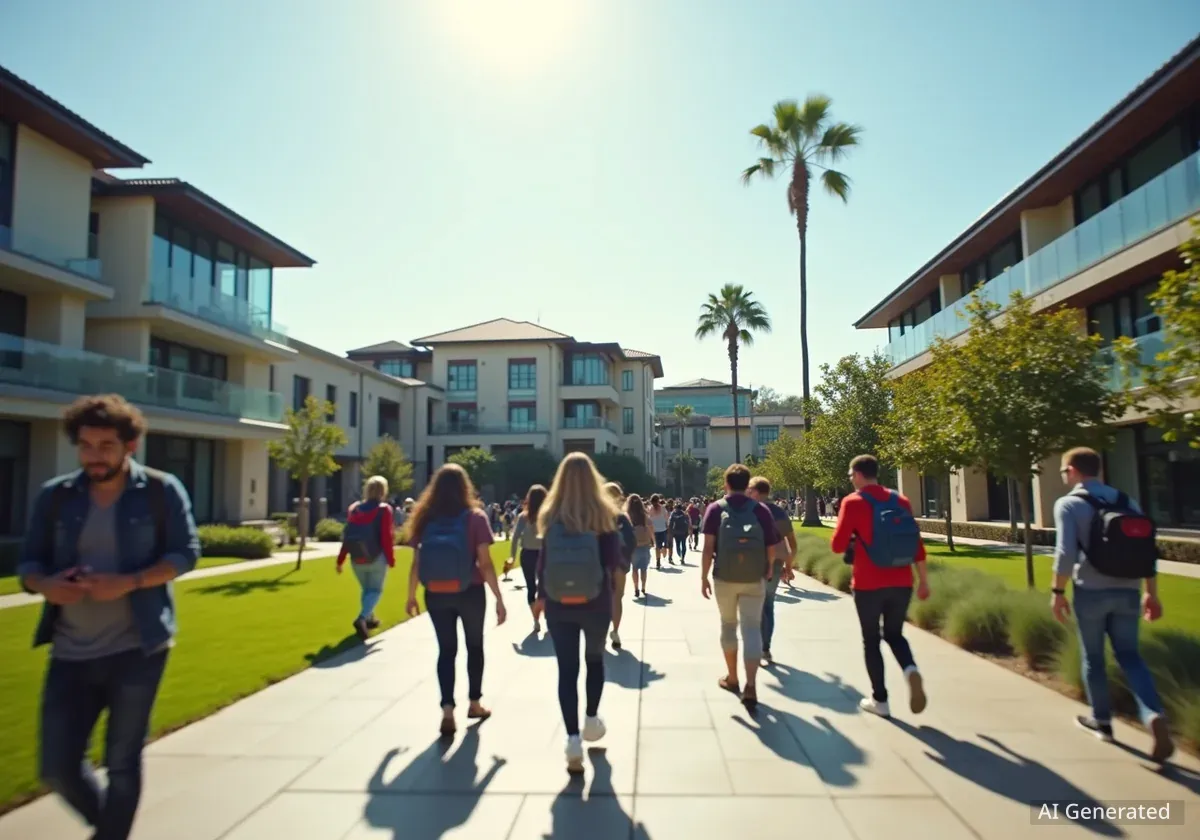The University of North Carolina Wilmington (UNCW) has grown significantly since its founding, now serving nearly 19,000 students as a doctoral and research institution. Located in Wilmington, NC, the university employs approximately 2,500 faculty and staff, establishing itself as a major academic and economic force in the coastal region of the state.
As students return to campus, university leadership, including Chancellor Aswani K. Volety, is emphasizing both the academic opportunities and the safety protocols in place for the community. The institution continues to build on its history, which began over 75 years ago, by focusing on applied learning and research partnerships between students and faculty.
Key Takeaways
- UNCW has evolved from its 1947 origins as Wilmington College into a doctoral research university.
- The university currently has a student population of nearly 19,000 and employs around 2,500 people.
- Its academic model emphasizes applied learning, critical thinking, and direct student-faculty research collaboration.
- Chancellor Volety recently issued a welcome message to students, and the university provides comprehensive safety information through its UNCW Alert system.
From College to Research Powerhouse: A 75-Year Journey
The University of North Carolina Wilmington was established in 1947 under the name Wilmington College. In its early days, it served the local community as a junior college, offering accessible education to residents of the Cape Fear region. Over the decades, its mission and scope expanded dramatically.
The institution underwent several transformations, eventually joining the University of North Carolina System in 1969. This move marked a pivotal moment, setting the stage for its development into a comprehensive four-year university. Today, UNCW is recognized as a doctoral university with high research activity, a designation that reflects its commitment to advanced scholarship and graduate-level education.
A History of Growth
The transition from a small local college to a major state university highlights a broader trend in American higher education following World War II. Institutions like UNCW grew to meet the rising demand for higher education and specialized training, evolving to serve regional and national needs.
This long-term growth has positioned UNCW as a key educational institution in North Carolina, particularly known for programs related to its coastal location, such as marine biology and environmental sciences.
A Snapshot of UNCW Today: By the Numbers
The modern UNCW is a large and complex organization. Its student body of nearly 19,000 comprises individuals from across North Carolina, the United States, and numerous foreign countries. This diverse population contributes to a vibrant campus environment.
Supporting this student body is a workforce of approximately 2,500 employees. This figure includes faculty members who are experts in their fields, as well as administrative and support staff who manage the university's daily operations, from student services to facility maintenance.
UNCW at a Glance
- Founded: 1947 as Wilmington College
- Location: 601 S. College Road, Wilmington, NC 28403
- Student Enrollment: Nearly 19,000
- Employees: Approximately 2,500
- Designation: Doctoral/Research University
The university's physical campus and its large population of students and staff make it a significant economic driver for the city of Wilmington and the surrounding coastal region.
The Academic Experience at North Carolina's Coastal University
UNCW's educational philosophy is centered on providing students with practical, hands-on experiences. The university promotes an approach known as applied learning, which encourages students to connect classroom theories with real-world applications.
This is achieved through several key initiatives:
- Undergraduate Research: Unlike many large universities where research opportunities are reserved for graduate students, UNCW actively encourages undergraduates to partner with faculty on significant research projects.
- Creative Inquiry: Students are pushed to explore topics with curiosity, developing skills in critical thinking and thoughtful expression that are valuable in any career field.
- Internships and Community Engagement: The university facilitates opportunities for students to gain professional experience and engage with the local community through structured programs and partnerships.
This focus ensures that graduates are not only knowledgeable in their chosen fields but are also prepared to excel in a constantly changing global workforce. The goal is to produce graduates who can solve complex problems and adapt to new challenges.
Campus Leadership and Student Safety Initiatives
As the academic year begins, university leadership is focused on welcoming the campus community back. In a recent video message, Chancellor Aswani K. Volety greeted returning and new Seahawks, setting a positive tone for the semester.
"Please see this video from Chancellor Volety, welcoming Seahawks back to campus on Monday."
Alongside academic and community-building efforts, student safety remains a top priority. The university maintains a robust system for communicating important safety information and responding to incidents. Students, faculty, and staff are encouraged to familiarize themselves with these resources.
Key Safety Resources
According to the university, critical information regarding campus safety and security procedures can be found through official channels. The UNCW Alert system is the primary tool for emergency notifications. For detailed information on incident responses, the university directs community members to its Incident Response FAQs page.
These resources are designed to provide clear, timely, and accurate information to ensure the well-being of everyone on campus. The university encourages all community members to visit uncw.edu/alert for more details.





